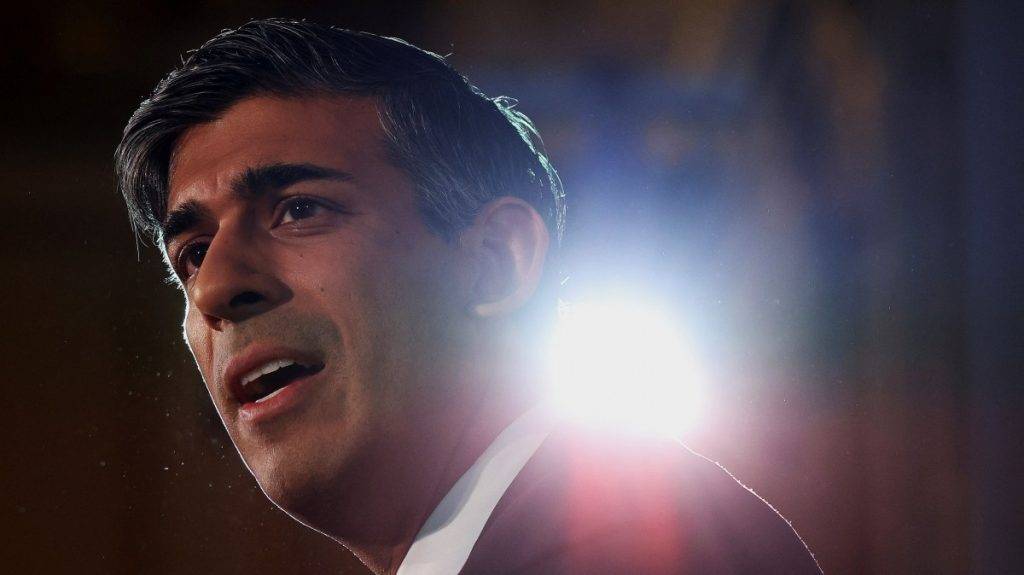Today’s news summary – Paper Talk: Tories face 1997-style wipeout
Many of Monday’s front pages lead on domestic matters after days of coverage on the situation in the Middle East.
The upcoming general election, a migrant boat overturning in the English Channel and the Rwanda bill are splashed on the front pages.
Tories face wipeout
The Daily Telegraph leads with the headline “Tories facing 1997-style wipeout,” highlighting the findings of a YouGov survey involving 14,000 voters. The survey, commissioned by a group of Conservative donors and conducted over the New Year, indicates a dire future for the Conservative Party.
According to the survey, Labour is poised to seize power with a commanding 120-seat majority. The forecast paints a grim picture, predicting the ousting of eleven cabinet ministers and the loss of every “red wall” seat that Boris Johnson secured from Labour in the 2019 elections.
In an op-ed for the paper, the UK’s former Brexit negotiator, Lord Frost, describes the survey results as “stunningly awful.” He asserts that the findings signal a bleak outlook for a Tory Party that is perceived as exclusively catering to the wealthy. The survey, commissioned by party donors themselves, serves as a stark warning, suggesting that a shift in approach and policies may be imperative for the Tories to avoid a devastating electoral defeat.
Rwanda bill pressures
The Times reports that Rishi Sunak is facing increasing pressure from senior members of the Conservative party to strengthen the Rwanda bill, which is set to return to the Commons tomorrow. According to the report, the party’s deputy chairman, Lee Anderson, is considering resigning as he deems the legislation insufficient in its current form. Additionally, the Business Secretary, Kemi Badenoch, has reportedly communicated privately to Downing Street her support for additional restrictions on asylum seekers’ avenues for appealing deportation. However, despite these calls for amendments, Rishi Sunak has chosen to retain the bill in its current iteration.
Meanwhile, the i paper sheds light on the discrepancy between the British government’s stance on Rwanda’s safety and the reality of asylum grants. Home Office figures, as reported by the paper, indicate that six individuals from Rwanda have been granted asylum in the UK since 2022. The reasons behind these grants remain undisclosed, except for at least one case citing sexual orientation as a factor. Notably, the i paper highlights that more asylum seekers have arrived in Britain from Rwanda than the other way around, with the latter figure still standing at zero. It raises questions about the effectiveness of the current policies and the government’s assessment of Rwanda’s safety for asylum seekers.
Bid to exclude Fujitsu
According to The Financial Times, a report uncovers that in the early 2010s, the coalition government initiated efforts to block public contracts awarded to the Japanese technology firm Fujitsu. Internally referred to as “Project Sushi,” the endeavour was reportedly motivated by concerns about Fujitsu’s performance on previous contracts, as shared by Whitehall insiders. However, the initiative was eventually abandoned after government lawyers raised legal apprehensions. Fujitsu UK declined to comment on the matter, citing the ongoing inquiry into the Horizon IT scandal at the Post Office.
The Guardian reports a dire warning from pharmacists, stating that lives are at risk due to an unprecedented shortage of NHS medicines. Figures revealed by the paper indicate a doubling of affected products within two years, encompassing crucial treatments for conditions such as epileptic seizures, schizophrenia, and certain cancers. The paper suggests that the lower purchasing power of the pound post-Brexit referendum could be a contributing factor to this alarming shortage.
The Daily Express reports that the six individuals arrested in connection with a suspected plot to disrupt the London Stock Exchange were apprehended following information provided by one of its undercover reporters. The paper says that it gained knowledge of plans to prevent the exchange from opening for trading, potentially causing turmoil in global markets.


